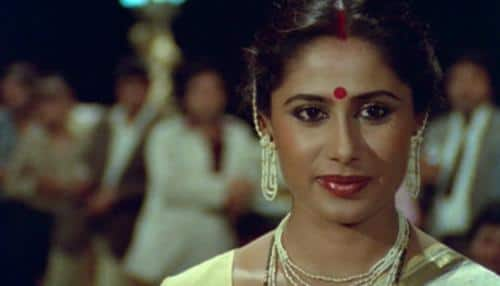- News>
- People
When Smita Patil cooked her own food during shooting

While shooting for Mrinal Sen`s `Akaler Sandhane` in Bengal, Smita Patil had great difficulty in getting good Marathi vegetarian food and so cooked her own dishes by borrowing vegetables and oil from the chef.
New Delhi: While shooting for Mrinal Sen's "Akaler Sandhane" in Bengal, Smita Patil had great difficulty in getting good Marathi vegetarian food and so cooked her own dishes by borrowing vegetables and oil from the chef.
Co-actor Dhritiman Chaterji recalls that apart from Patil, all the caste and crew members were resolutely non-vegetarian.
"Mrinal da being a good East Bengali had to have fish all the time. That must have turned her stomach. She used to borrow vegetables and cooking oil from the cook and made her own food on a stove," Chaterji reminisces in the "Smita Patil: A Brief Incandescence" by author-film critic Maithili Rao.
Late cinematographer K K Mahajan also remembered Patil cooking simple rice and vegetables for herself during the entire shoot.
"Smita Patil: A Brief Incandescence", published by HarperCollins India, tells her remarkable story, tracing it from her childhood to stardom, controversial marriage and untimely death.
Her close friends remember 'Smi' as outspoken and carefree, not beyond hurling abuses or taking off on bikes on impromptu joyrides. Filmmakers Shyam Benegal and Jabbar Patel and co-stars
Om Puri and Shabana Azmi, talk about Patil's dedication to her craft and her intuitive pursuit of that perfect take.
The book also includes a critique of the films that defined her and read like a roster of the best of New Indian Cinema: "Bhumika", "Mandi", "Manthan", "Umbartha", "Bhavni Bhavai", "Akaler
Sandhane", "Chakra", "Chidambaram" and "Mirch Masala" among others. Maithili Rao also studies Patil's many unfortunate forays into mainstream commercial cinema.
Highlighting the "publicity game" at Cannes, Rao cites an example of the 1970s when "Nishant" was in the competition section at the prestigious festival. NDFC had sent some posters of the film which had not reached Cannes.
It was then that the film's director Shyam Benegal came up with an interesting idea.
Azmi recalls, "He said, 'I want both of you to wear your best south Indian saris and walk the promenade from eight in the morning.' So there we were, parading in our silk saris when everyone else was in beachwear! We were such a sight! When anyone looked at us, we'd grab them and say, "We have a screening at such and such time, please come."
